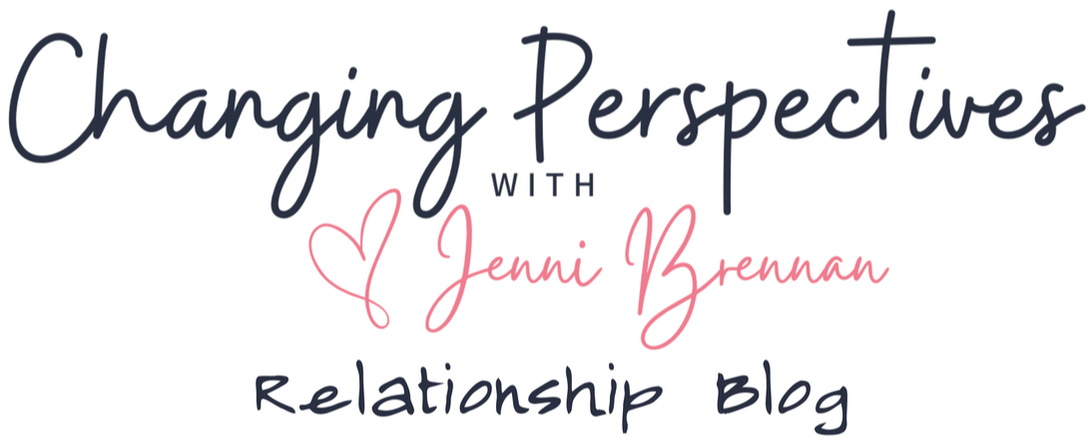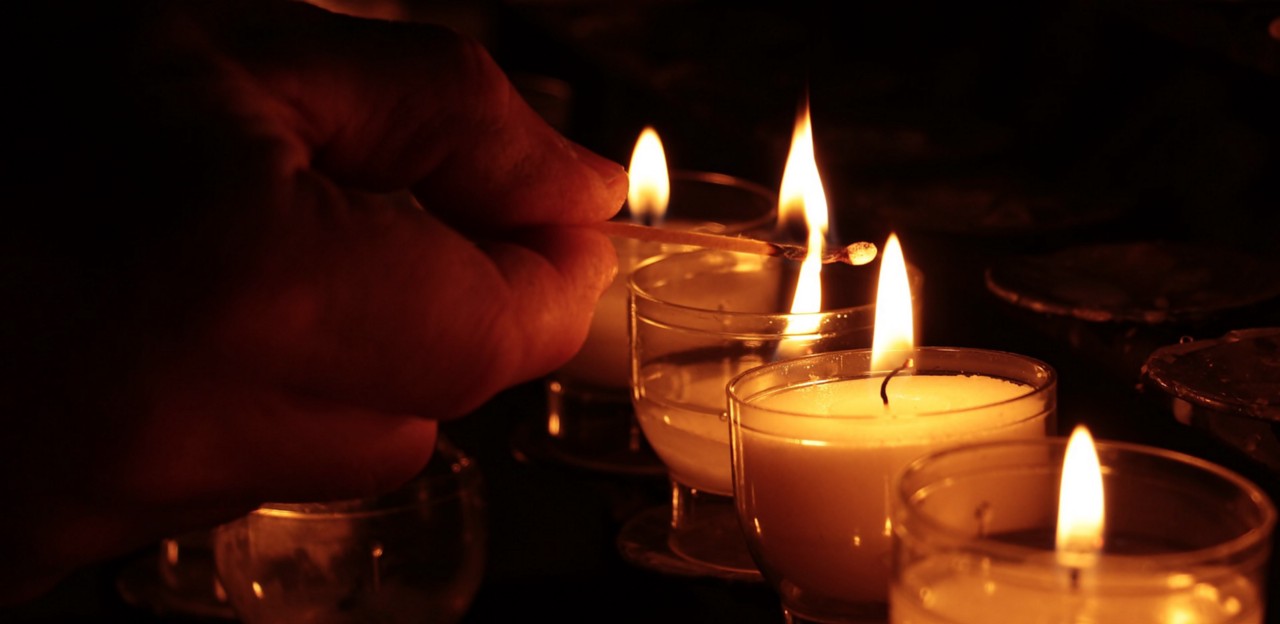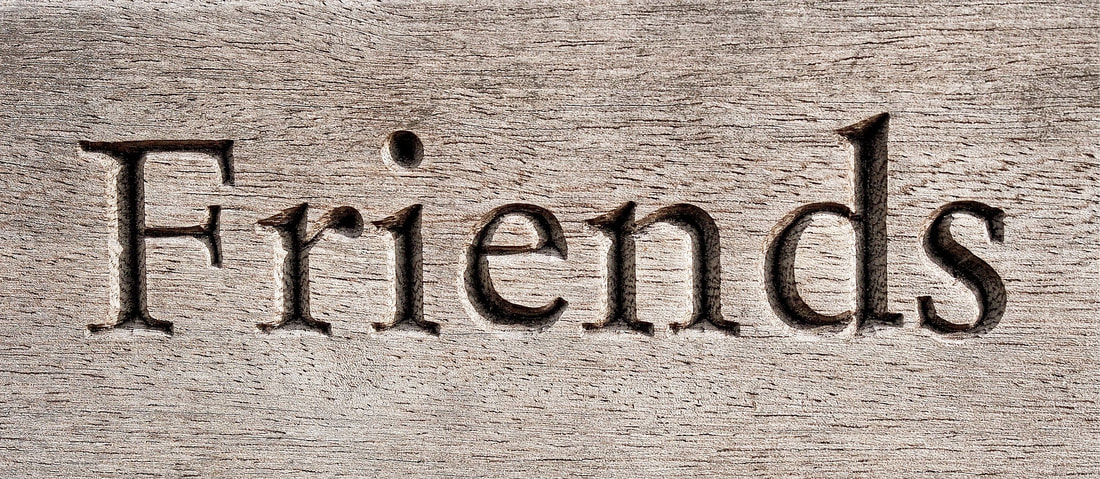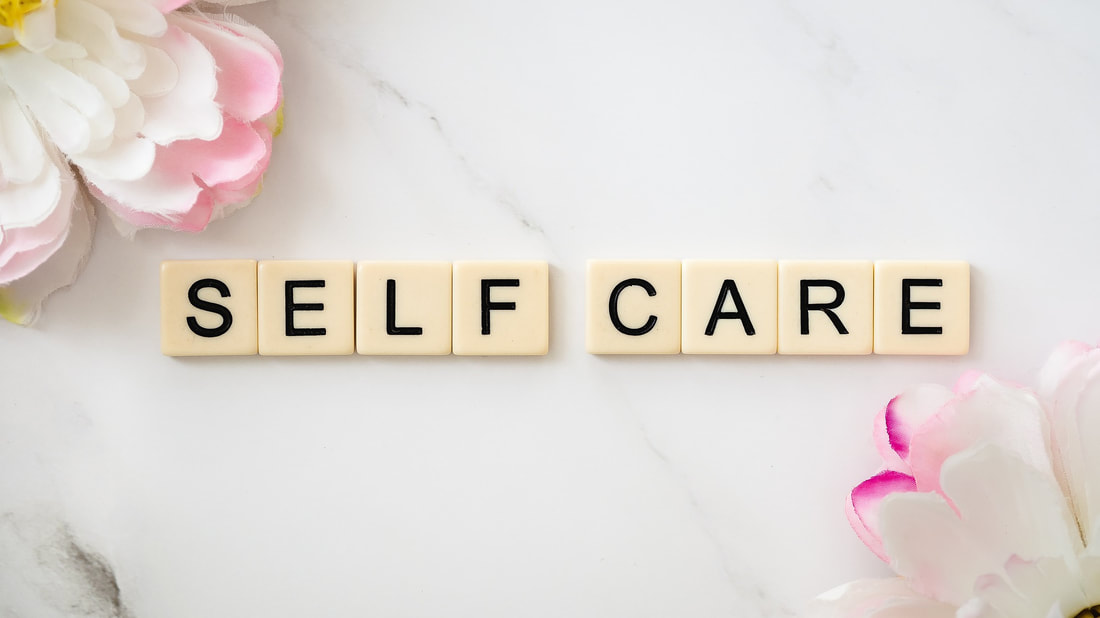|
As I sat at my desk during my 10 minute break between grief therapy clients, I opened my Facebook app to scroll mindlessly for a few moments, completely unaware that my life was about to change.
A photo of one of my friends filled my feed instantly. It was a beautiful photo of her, one that captured her love for all people and her genuine desire to make life better for everyone. I skimmed the headline beneath the photo quickly and my brain couldn’t compute what I was seeing. The gruesome, horrific, unreal words didn’t match the photo before me of the carefree young woman that danced the night away at my wedding or led classrooms full of preschoolers in silly songs alongside me. It couldn’t be. With a shaking finger, I clicked on the link and my brain was finally able to make the connection. We failed her. The society she worked so hard to make better had failed her, letting her and her daughter die a horrible death at the hands of the man that was supposed to love them most. It’s a fate shared by many women and now she was part of the startling statistic of women whose desire to leave their partner led to their own murders. Tears spilled freely from me in that moment. I’m not so sure she ever really knew how much her role as a mentor had meant to me or how much it had changed the course of my personal and professional life. I don’t know that I ever really told her how much I had learned from her and how much I always wished I had the courage to commit my life to making the kind of global changes that she so selflessly has made. I hope she knew how much of a ripple she had left in my life but I can never know for sure. Now it’s too late. She’s gone. Nausea swept over me and I broke out into a cold sweat as my brain began to process the terror she must have felt in her final days, final hours, and final moments as she realized she had no way to escape. As dark as it was, I wanted to stay in the moment of grief, that space of remembering her, but the clock kept ticking and in just a minute I was due to provide grief therapy to another patient. I quickly pulled myself together, fixed my face, and pushed my emotions into a far off corner in my mind so that I could hold space for someone else’s grief, hoping that I would be able to process all of my feelings later on. After leaving work that day, I briefly exchanged text messages about the awful story with some of my closest friends and shared a Facebook post not about the manner of her death but about her contributions to the world, as if somehow disconnecting the photo of her beautiful face from the horrible headline could alter reality. Then I went about my night. I sat at a friend’s kitchen counter with other moms, making decorations for a youth football championship game while chitchatting about mundane stuff. My brain both craved this simple, unemotional task and yet also wanted to reject it. I wanted to set the football decorations aside and share her legacy with everyone. I wanted to tell them about her, her work, the sheer number of lives she changed, and my memories of her from such a pivotal time in my life. But no one wants to talk about sadness or grief or loss or death. So, I didn’t bring it up and neither did any of the people there with me. Collectively and silently we somehow agreed to pretend it hadn’t happened. We minimized the reality of her death and ultimately minimized her and her life. I moved through the space of the next few days in a deeply contemplative state, as one often does when the unexpected and terrible occurs in life. Suddenly things that seemed incredibly important paled in comparison to what my friend had gone through; what her family and community were going through. My own priorities snapped into focus. Life is far too short for many of us and tomorrow is not a guarantee. So, why waste any of it on the things and the people that hurt you or don’t make your life better? What is going to matter most at the end of my own life? What will my legacy be? Do the people who matter to me know how much they matter? After a loss or trauma, the world marches on, leaving the grievers behind to pick up their own pieces, or to at least pretend they are picking up their own pieces. But, inside there is a constant loop of questions being asked and a deep yearning to be given permission to talk about their grief. The reality is that we are surrounded by hurting people all the time; people who want to talk about the sad stuff. They want us to ask them about their dead child, their murdered friend, their dying grandparent, or the struggles of waiting to find out if their biopsy is cancerous. They are craving permission to share their inner struggles about trying to find a way to make sense of the saddest parts of our lives. But, instead we throw ourselves into the things that don’t matter: small town politics, conflict in surface-level friendships, baskets of laundry that are overflowing, traffic that adds 15 minutes to our commute, gossip, drama, nonsense. At the end of our lives, none of it will matter. Imagine how much more beautiful this life could be if we all were just a little more real with each other. Imagine the benefits to being just a bit more vulnerable. What would it be like if we all focused more on real connections and sloughed off the stuff that won’t matter when we are at the end of our own lives? I wonder if the outcome would have been different if more people had done this for my friend. Perhaps it wouldn’t have changed what happened to her but maybe, just maybe, it would have given her a few extra moments of hope, comfort, and validation. We have work to do.
0 Comments
Friendships in our adulthood can be complicated and challenging to navigate. I’m not sure why this has come as a surprise to me — I suppose I mistakenly assumed that all the hard relationship stuff would be over once I was done with middle and high school. I thought I would graduate from high school and leave all the bad hair, fashion faux pas, and drama behind.
I was wrong. Adulthood is just the next level of complicated and adult friendships are just the next level of challenging. One of the most difficult aspects of adult friendships can be deciding when to end one. Sometimes, though, the decision you need to make can be pretty clear, especially if your friend is demonstrating any of the 7 tell-tale signs that the friendship is a toxic one: 1. They ghost you If you’ve ever been ghosted by someone, you know how much it hurts. One minute you are a part of that person’s life and the next it’s as if you never existed. Phone calls, text messages, invitations, and even acknowledgements in public just come to a screeching halt. Even if there have been hurt feelings or mistakes in a friendship, resorting to completely ignoring someone is just plain childish. 2. They are talking about you If word is getting back to you that your friend is talking about you in a negative way to other people or is sharing private details about you to others without your permission, that behavior indicates a lack of respect for you. You deserve better. You should be able to trust your friends to come to you directly with concerns and to be able to keep your confidential information private. 3. They hold grudges or keep score If your friend is someone who routinely brings up mistakes you made from weeks, months, or years ago to justify their own poor behavior, they are telling you that your relationship is not one that is unconditional. They are keeping score and if you mess up (which you will, because you are a human), they could hold that over your head in the future. Who needs friends that aren’t willing to forgive you for mistakes? 4. They only reach out to you when they want something When you really take a step back and evaluate your relationship, who is doing the initiating of texts, phone calls, and invitations? Are you always the one checking in on them, following up on them, inviting them to spend time together, or sharing stories? Do they only initiate contact with you when they need support or a favor? You deserve friends who give as much as they take. 5. They try to show off or make you feel jealous When you are together, either alone or in a group, does your friend often make it a point to share details, photos, videos, or stories from parties and events to which you were not invited? Are they sure to highlight how close they are with some of your other friends? Actions like that may be excusable from children, but not from adult friends. 6. They make you cry more than they make you laugh If you look back over the entirety of your relationship, do you have more memories of feeling hurt, angry, or ignored than you do of sharing joy with your friend? What is the point of a friendship if it brings you mostly pain and hurt? 7. People are telling you to walk away Are other people around you noticing some of the behaviors listed above? Are they asking you what is going on with the two of you? Are they encouraging you to cut ties and walk away? Are they telling you that you deserve to be treated better? They are right, you know. If any of these signs resonate with you and sound like your friend, it may be time for you to make a decision about where to go next in your relationship. Be honest with yourself — do you ever display any of these behaviors yourself? What level of responsibility can you accept for the current state of your friendship? Do you want to attempt to repair the relationship, change the relationship, or walk away completely from the relationship? It’s important to remember that life is too short to allow yourself to be mistreated, disrespected, belittled, or made to feel invisible. Often, when we make the decision to walk away from a friendship and we turn our attention elsewhere, we find friendships that are much more deserving of our attention, trust, and time. It’s ok to give yourself permission to want more from the people in your life. You deserve to be happy. “Get over yourself.”
“Stop being so sensitive.” “Let it go.” “You’re too needy.” That was the message I received the other day, before I had even left my bed. Ouch. I had decided to take a few minutes to read through my social media pages before officially starting my day. As I laid there groggily scrolling through my friends’ updates, I came across an article on friendship. Without a moment’s hesitation, I opened the article. In the words of Julia Roberts, “Big mistake. Big. Huge!” The overall theme of the article was pretty clear: sensitive friends take too much time and energy. The author of the article had come to the conclusion that it was time to turn away from those relationships, choosing instead to focus on friends that were more secure in themselves and didn’t require so much attention. To me, a sensitive person, the words stung. I identified with the friends the author was letting go of because they were “too sensitive.” And, just like a sensitive person, I took the article to heart. I allowed my interpretation of the article to set the tone for my entire day. The words echoed in my head as I got my kids ready for school and myself ready for work. The words brought back all the feelings that I’ve struggled with for so much of my life, struggles that I see lots of others face too: the push to conform and be something or someone different to make others happy; the push to hide who you really are because who you really are is just not right. The truth is, it can be difficult to be my friend. It takes a lot for me to actually let a new friend in and then once I do, I have pretty high standards. I want to be included in things. I want my friends to be honest with me, even if it’s difficult. I also need my friends to understand that sometimes, as an introvert, I get overwhelmed with too many social activities, crowded places, or as my niece calls it, when things are “too people-y”. Sometimes I retreat and go dark for a bit. Sometimes my own depression and anxiety rear their ugly heads and I can’t get out of my own way. I need friends who won’t judge me during those times or tell me to “just be happy.” I also need my friends to take ownership and apologize when they’ve done something that hurts me, whether intentionally or unintentionally. I am a complete juxtaposition of a person at times. To be friends with me is a lot to ask of someone. I get that. But, does any of that make me a bad person? A bad friend? Am I wrong to feel the way I feel? Am I out of line to approach friendship the way I do? Am I too sensitive? I think for most of my life, I answered “Yes” to all of those questions and allowed myself to feel shame for who I am as a person. But, as I contemplated that article, I began to wonder not just about my own potential shortcomings but those of the author. What about her? Could it be that she and all of the people that liked and shared the article were wrong? Is there something wrong with them? Are they out of line to approach friendship that way? Are they too abrasive? Are they not sensitive enough? Which of us is right? Which of us is the better person? I’ve chewed on this question for the past few weeks, weighing out the benefits and drawbacks to each personality style and approach to friendship. While being the way I am has certainly posed challenges to those in my life and to myself, it also has probably led me to where I am in life. It probably makes me a better clinician. It probably makes me better able to understand the pieces of my children that are just like me. It probably has allowed me to feel things, not just bad things, but good things as well, on a deeper level than others that aren’t quite so sensitive. It probably is what allows some of my friendships to feel so very deeply rooted. Would I really want to be a version of myself that didn’t have these components? I don’t think so. Does that mean that I am fully grown and have reached enlightenment and can’t improve as a person? Absolutely not. I think I can be someone who still wants to improve and grow AND can also still be someone who can be proud of who I am. So, which of us is right and which of us is the better person? Neither. In the weeks since I allowed that article to punch me in the gut, I’ve come to believe that friendships come with a price, just like most things in life. When it comes to friendships, all of us have a budget of emotional energy to invest in friendships and it is up to us to decide how we spend it. We can decide whether the cost is worth the return. For some people, what it costs to be my friend might be too much for too little in return or they just may choose to use their budget differently. The author is probably one of those people and that’s ok with me now. I get it. Her decision doesn’t mean that anything is wrong with me. It doesn’t mean that I actually need to stop being so sensitive or need to get over myself and my feelings. It just means that we aren’t a good fit for each other. So, to those of you that have been told you are too sensitive, let me tell you this: you keep on being you. To those of you that don’t want to be friends with someone like me, you keep being you too. Neither one of us is wrong. Neither one of us is better than the other. Neither one of us is more well suited for life or for friendship. It turns out that what some may see as our flaws or weaknesses may actually be our greatest strengths and assets. I have an investment question for you. Of the following two banks, which would you choose?
Bank A
Bank B
So, which option would you choose? What if the options were not banks but people in your life and what if the funds were not money but emotional energy? Would your choice change? Why? No. Really. Ask yourself why? Often in psychotherapy, I start to see patterns among clients. Perhaps it’s the time of year or phases of the moon or something I don’t understand like Mercury in Retrograde or El Nino. Or, maybe it’s just me. Whatever the reason, lately I have seen a pattern emerge in many of my sessions – the expense of emotional energy. What is emotional energy? I like to think of emotional energy as money. It’s the emotional cost of doing something. Think about Bank A and Bank B. Now think about the people in your life. Which people would you categorize under Bank A? Which would you categorize under Bank B? Think about your last encounter with someone from Bank A. Maybe it was a phone call, a party, a work meeting, a vacation. How much did it cost you emotionally to participate in that encounter? Did you find yourself emotionally drained afterwards? Did you text someone from Bank B after the encounter and say, “I need a glass of wine. Stat!” Did you go home and overreact by snapping at your spouse or your children? Did you skip a workout because you were too drained? Did you push yourself super hard at the gym because you needed to process the encounter? Did you turn your radio up really loud in your car? Did you cry? If you had any of these responses, then it’s safe to say that the encounter was probably emotionally costly for you. You invested a whole lot of energy into being with that person and you didn’t get anything back of value in return. In fact, it cost you to be with them. Now, think about your last encounter with someone from Bank B. What was that experience like for you? How much did it cost you emotionally? Did you actually feel that it recharged you emotionally? These are the people we need to be focusing on in our lives. These are the people we need in our lives. They fill us up. They make us rich, emotionally. But, how do you manage these people in your life that are emotionally costly? How do you handle Bank A? Well, you have three choices: 1. End your relationship with them. While this is not always a possibility, sometimes it is something that can happen. You can end friendships. You can leave toxic work environments. You can avoid certain family members. Sometimes you can choose Bank B over Bank A. Usually, however, I recommend trying the other options first… 2. Limit your encounters with them. Perhaps you aren’t ready, don’t want to or simply can’t leave Bank A completely. Are there ways that you can limit your time with Bank A? Can you establish some new boundaries with them? Can you weigh out how much emotional energy will be invested in a certain encounter and perhaps skip it or role play some ways to better balance it beforehand? Can you be honest with them about how you are feeling? 3. Change how you approach them. The first step in this option is to evaluate WHY your encounters with them are so costly. Take some time and truly explore your previous encounters with these individuals. What is it about the encounters that requires you to invest so much emotional energy? Are you being criticized by them? Are you constantly trying to seek their approval? Do they use up all of your time asking for your advice or complaining to you about their own problems and never give you anything in return? Is there something in the past for which you aren’t able to forgive them? The second step in this option is to understand HOW your encounters are costly. What is your internal process while you are with them – are you anxious, angry, hurt or feeling some other emotion? What are you thinking in the days leading up to the encounter? What are you thinking during your time with them? What are your immediate thoughts after the encounter? The third step in this process is to truly accept that the individual will likely NEVER CHANGE. I know what you are thinking – “How does she know? Maybe if I could just be a litt more _____ or a little less ______, I can make them ______ or help them to see ________________.” No. Change is hard and people only change when they want to change. Nothing you say or do is going to make someone love you, respect you, appreciate you, value you or acknowledge you more. Nothing you say or do is going to make someone hurt you, ignore you or let you down less. Stop trying. Stop hoping things will be different. They are who they are and you cannot change that. The only thing you can change is how you choose to interact with them, how you respond to them and how much emotional energy you choose to invest in them. Let's take a moment to think about and consider the feelings of people from Bank A. They probably are not bad people. (In fact, I often correct my children and tell them that there aren't bad people, only people making bad choices.) They probably aren't aware of how emotionally costly they are to you. They likely think you are overly sensitive or rude or require too much from the people in your life. It's worth considering those thoughts for a while. Are there some changes that you should be making in yourself? Are they right? Do you want to change those things? If you have people in your life from Bank A and you feel that you are investing a lot of emotional energy in those relationships then you have some soul searching to do. So, pour yourself a cup of coffee or go take a long shower or take a long drive or get out your journal. Do whatever you need to do in order to create some space for you to think and reflect. Life is too short; far too short. Isn’t it about time you find a way to invest more in yourself? |
RelationshipsRelationships take effort and need to continuously be renegotiated over the years. These articles explore friendships and romantic partnerships - both their importance and how to improve them. Archives
June 2023
Categories
All
|
Sign Up For the Changing Perspectives Newsletter
Changing Perspectives with Jenni Brennan is supported by its audience.
When you purchase through links on this site, an affiliate commission may be earned. Learn More.
When you purchase through links on this site, an affiliate commission may be earned. Learn More.
Changing Perspectives Copyright © 2023





 RSS Feed
RSS Feed
